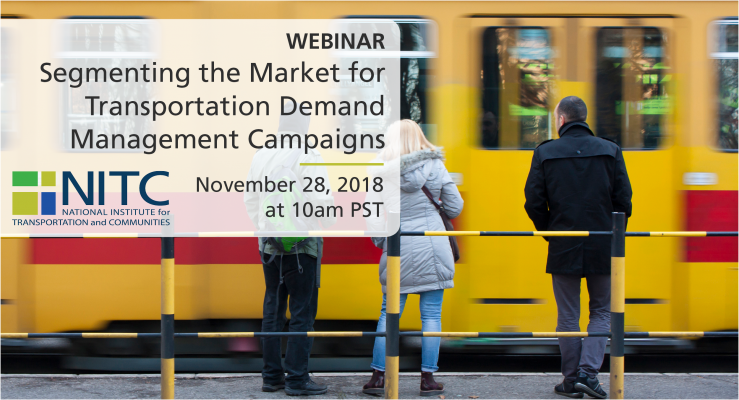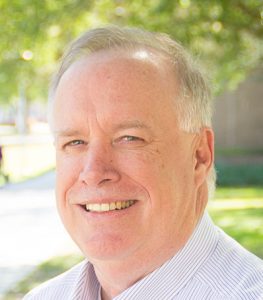
PRESENTATION ARCHIVE
Miss the webinar or want a look back?
- Watch the recorded video
- View the presentation slides
- Access the Excel-based Market SEGMENT prediction tool
OVERVIEW
Social marketing seeks to develop and integrate marketing concepts with other approaches to influence behaviors that benefit individuals and communities for the greater social good. It is a useful transportation demand management (TDM) planning approach to promote travel behavior change. The purpose of this study was to explore a consumer market segmentation technique successfully used in Europe for its applicability to marketing efforts in the United States. Attitudinal and demographic data were collected from 1900 individuals in Florida, Oregon, and Virginia modeled after the European approach. Clustering analysis was applied to divide the sample into segments so that members of the same group share similar attitudes. These include attitudes about various modes, car use, and congestion and environment. A classification model was built to predict group membership. The most stable and distinctive segmentation resulted in 7 segments. From this list of over 100 attitudinal questions, 17 questions were found to separate segments most significantly and predict group membership with high level of accuracy. Attitudinal profiles for each group were developed based on thee mean responses to these “golden questions”. This webinar will discuss the method and results.
KEY LEARNING OUTCOMES
At the end of this webinar, the learner will be able to:
- Describe at least 2 potential benefits of market segmentation;
- Explain differences between the European results and US results;
- Identify 2 potential applications of the segmentation; and
- Describe how to use the spreadsheet tool to identify a commuter’s segment.
THE RESEARCH
This webinar is based on a study funded by the National Institute for Transportation and Communities (NITC) and conducted at the University of South Florida (USF). Read more about the research: SEGMENT: Applicability of an Existing Segmentation Technique to TDM Social Marketing Campaigns in the United States.
SPEAKERS
 Philip Winters, University of South Florida
Philip Winters, University of South Florida
Philip L. Winters is Director, Transportation Demand Management (TDM) Program at the Center for Urban Transportation Research (CUTR) at the University of South Florida (USF). He has nearly 38 years’ experience in TDM, including 10 years managing a regional TDM program in Virginia and over 25 years at CUTR conducting research and providing training/technical assistance. He is an emeritus member of the Committee on TDM of the Transportation Research Board. Phil also received the prestigious Association for Commuter Transportation’s Bob Owens TDM Champion Award in 2007.
 Amy Lester, University of South Florida
Amy Lester, University of South Florida
Amy Lester is a Faculty Research Associate at the Center for Urban Transportation Research at the University of South Florida. Dr. Lester earned her PhD in Public Health concentrating on Social Marketing in 2014 from the University of South Florida, College of Public Health. Dr. Lester holds additional undergraduate and graduate degrees in Public Health, Anthropology, and Biomedical Sciences. Dr. Lester has strong methodological expertise, and her research interests focus on qualitative formative research, social marketing, social determinants of health, and program evaluation. In addition to research, Dr. Lester has extensive teaching experience at both the college and high school levels.
PROFESSIONAL DEVELOPMENT
This 60-minute webinar is eligible for 1 hour of professional development credit for AICP (see our provider summary). We provide an electronic attendance certificate for other types of certification maintenance.
LEARN MORE
Sign up for our newsletter to get updates on our events.
This webinar is hosted by the Transportation Research and Education Center (TREC) at Portland State University. The research was funded by the National Institute for Transportation and Communities (NITC), a program of TREC and one of five U.S. Department of Transportation national university transportation centers. The NITC program is a Portland State-led partnership with the University of Oregon, Oregon Institute of Technology, University of Utah and new partners University of Arizona and University of Texas at Arlington. We pursue our theme — improving mobility of people and goods to build strong communities — through research, education and technology transfer.
